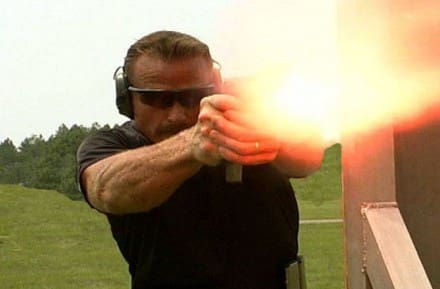This is a great ‘hot topic’ debate issue. I’ve been in the middle of this one several times as have you. I like to debunk myths and research gimmicks. Through discovery learning, much can be learned.
The question of whether a zeroed rifle equals a zeroed rifle is one that I ask in nearly every course I run.
“Is a rifle that is zeroed for one shooter, zeroed for another shooter?”
You may have a very strong opinion here. So do I. My opinion is backed up by empirical data. I have vetted this question by having shooters in every one of my courses check the data by firing someone else’s rifle,…after it is zeroed. The data is the same 100% of the time.
The problem is, and the reason for the ‘Gray Area’, is understanding when a rifle is zeroed. I’d say a rifle is zeroed when the shooter can achieve consistent center mass 10 round, sub two minute (or even three minute) groups at a SR-1 target from 100 yards. Fair? If the shooter is consistent, say…, is achieving a score in the high ‘nineties’ with each group, this is not accidental. Fair? The shooter is consistently applying the fundamentals. The shooter’s cheek stock weld, eye relief, firing hand position, cyclic rate of breathing and trigger control remains the same with each round fired and from group to group. If the shooter is achieving all of these, I am pretty sure that the rifle is zeroed. I am also pretty sure that if I apply the same fundamentals, I can achieve similar results with that shooter’s rifle. If the shooter is using a red dot sight, I will use the sight as intended. If the shooter is using iron sights or a chevron as seen through some ACOG sights, I will need to ask the shooter where his point of aim is.
Patrick McNamara
SGM, US Army (Ret)

Patrick McNamara spent twenty-two years in the United States Army in a myriad of special operations units. When he worked in the premier special missions unit, he became an impeccable marksman, shooting with accurate, lethal results and tactical effectiveness. McNamara has trained tactical applications of shooting to people of all levels of marksmanship, from varsity level soldiers, and police officers who work the streets to civilians with little to no time behind the trigger.
His military experience quickly taught him that there is more to tactical marksmanship than merely squeezing the trigger. Utilizing his years of experience, McNamara developed a training methodology that is safe, effective and combat relevant and encourages a continuous thought process. This methodology teaches how to maintain safety at all times and choose targets that force accountability, as well as provides courses covering several categories, including individual, collective, on line and standards.
While serving as his Unit’s Marksmanship NCO, he developed his own marksmanship club with NRA, CMP, and USPSA affiliations. Mac ran monthly IPSC matches and ran semi annual military marksmanship championships to encourage marksmanship fundamentals and competitiveness throughout the Army.
He retired from the Army’s premier hostage rescue unit as a Sergeant Major and is the author of T.A.P.S. (Tactical Application of Practical Shooting).
Gunfighter Moment is a weekly feature brought to you by Alias Training & Security Services. Each week Alias brings us a different Trainer and in turn they offer some words of wisdom.
Tags: Alias Training and Security Services, Pat McNamara, TMACS



I’m glad to see that he mentioned that, with some sighting systems, people will have different points of aim. With an ACOG/red-dot system, each of our points of aim will be mostly the same. However, with the classic M-16 style iron sights, people tend to interpret the proper sight picture differently.